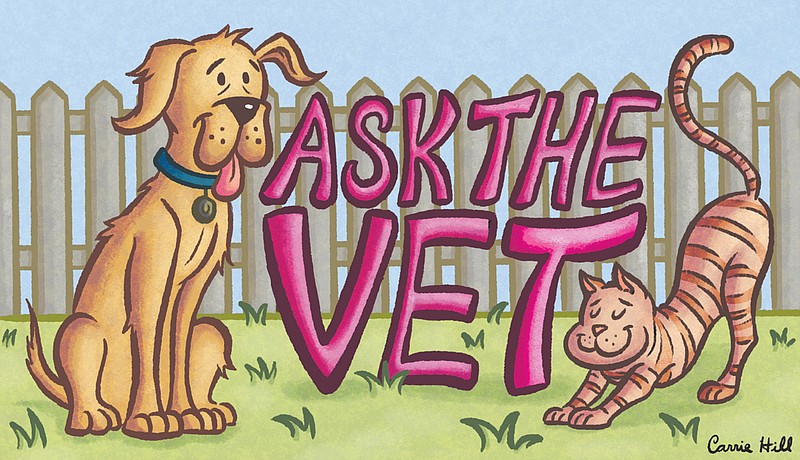Q: I live in the country, and my cat sometimes ventures off my deck on nice days. I am planning a garden and want to choose plants that won't poison my cat if he nibbles them. What do you suggest?
A: I'm sure your cat will thank you if you plant some catnip, cat mint, cat thyme or cat grass.
Other pet-safe plants are begonias, bachelor buttons, camellias, cockscombs, hens and chicks, ice plants, marigolds, snapdragons and zinnias.
Avoid chrysanthemums, clematis, coleus, daffodils, foxglove, geranium, hibiscus, hosta, hyacinths, ivy, lilies, lily of the valley, peonies, tulips and vinca.
For a comprehensive list and photos of pet-safe garden plants, visit the Animal Poison Control Center at aspca.org.
Be choosy about the other components of your garden, too. For example, cocoa bean mulch is toxic if ingested, because it contains theobromine and caffeine, which can cause regurgitation, diarrhea, elevated heart rate and seizures. Use a hardwood or pine mulch instead.
Insecticides and herbicides can also pose problems, so minimize use of these products and avoid phenoxy-type herbicides, which can increase the incidence of cancer.
Don't use slug bait that contains metaldehyde, which can be fatal to pets and wildlife. Check the internet or your cooperative extension service for safe alternatives (see arkansasonline.com/314ua).
Design your garden so it has no standing water where mosquitoes can breed, and keep your grass mowed to discourage fleas and ticks.
Q: For the past few months, our dog Sandy has coughed several times a day. It sounds like she's trying to clear her throat, but nothing comes up. Her veterinarian says her lungs and heart sound fine. What could be causing her cough?
A: Coughing is a protective mechanism that helps clear the airways of irritants, such as particulate matter and excessive mucus. So, occasional coughing is normal.
Excessive coughing, however, is cause for concern and should be investigated. Because many conditions can trigger a cough in dogs and the treatments vary, it's important to find the cause so effective treatment can be instituted.
A clear-the-throat, gagging cough can be caused by irritation or inflammation of the esophagus, called esophagitis, due to conditions like gastroesophageal reflux disease.
Upper airway disorders such as collapsing trachea and laryngeal paralysis cause coughing in dogs. Laryngeal paralysis is often accompanied by harsh panting and sometimes by hind leg weakness.
Heartworms, lungworms and other parasites can cause coughing, as can bacterial, viral and fungal infections, especially if they induce pneumonia.
Respiratory diseases such as chronic bronchitis, an inflammatory condition, also cause coughing.
Heart disease can induce coughing. Often, especially in small-breed dogs, the veterinarian can hear a heart murmur.
In overweight dogs, extra fat in the chest compresses the breathing passages and causes a cough.
Cancer in the lungs or elsewhere in the chest can also precipitate a cough.
Other conditions, such as reverse sneezing, are sometimes mistaken for a cough.
As you can see, the list of disorders that cause coughing -- and coughlike sounds -- is long.
Ask your veterinarian to listen to Sandy's cough or watch videos of her coughing to rule out esophagitis and reverse sneezing. Request routine blood work, a heartworm test and chest radiographs, sometimes called X-rays. Once the cause of Sandy's cough is determined, your veterinarian can recommend appropriate treatment.
Lee Pickett, VMD, practices companion animal medicine in North Carolina. Contact her at
vet@askthevet.pet
